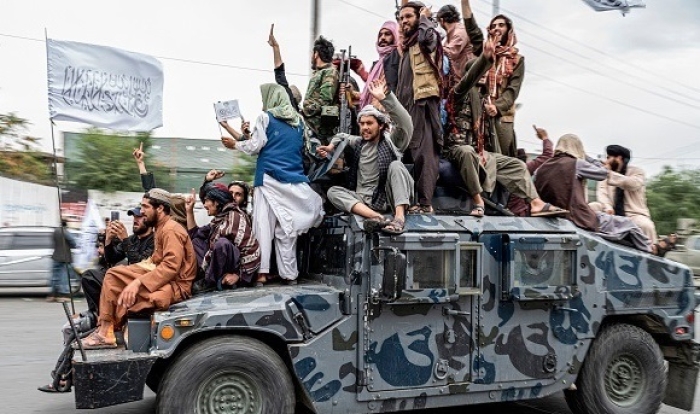
(CNSNews.com) – The U.S. Special Inspector General for Afghanistan Reconstruction has informed lawmakers that, “for the first time in its [14-year] history,” it is unable to provide Congress and taxpayers with “a full accounting” of government spending in the country – more than $1.1 billion since the Taliban takeover – because federal agencies won’t cooperate.
In its most recent quarterly report to Congress, the 57th since its establishment, the watchdog said both USAID and the Treasury Department “refused to cooperate with SIGAR in any capacity, while the State Department was selective in the information it provided.”
As Republicans on the House Oversight and Reform Committee push for answers, the State Department says that SIGAR has been pressing for information on spending that falls outside its mandate.
“Our position is that, except for certain specific funds, SIGAR’s statutory mandate is limited to funds available for, quote, ‘the reconstruction of Afghanistan,’” State Department spokesman Ned Price said on Wednesday.
“Since the Taliban takeover in August of last year, we have stopped providing assistance for the purpose of reconstruction and we now focus on alleviating the immediate humanitarian situation in the country.”
House Oversight ranking member Rep. James Comer (R-Ky.) and colleague Rep. Glen Grothman (R-Wisc.) dispute that argument, however. In a recent letter to SIGAR head John Sopko, they called the administration’s “obstruction” of his office’s work “unprecedented.”
Comer and Grothman noted, for example, that USAID had not provided SIGAR with information on Economic Support Fund (ESF) funds for Afghanistan.
The legislation that created SIGAR, the National Defense Authorization Act for fiscal year 2008, clearly lists ESF funds among those to be examined and reported on in the quarterly reports.
The legislation also gives SIGAR “jurisdiction to audit, investigate, and report on projects and programs” whose purposes include:
(A) To build or rebuild physical infrastructure of Afghanistan
(B) To establish or reestablish a political or societal institution of Afghanistan
(C) To provide products or services to the people of Afghanistan
SIGAR said in its report that the State Department and USAID were “claiming without basis that U.S. programming in Afghanistan is unrelated to reconstruction activities, and is instead ‘humanitarian and development assistance.’”

“SIGAR rejects this claim, noting that there is little to no substantive difference between assistance referred to as ‘reconstruction’ and assistance referred to as ‘development’ or ‘humanitarian.’”
Moreover, it said that every one of its quarterly reports up until now “discuss humanitarian and development assistance within the broader context of Afghanistan reconstruction.”
“No federal agency has challenged SIGAR’s authority to conduct oversight of such programs until now.”
‘Most transparent administration in history’
In their letter to Sopko, Comer and Grothman said that the State Department and USAID had historically honored SIGAR’s mission.
“But since the Biden administration’s botched Afghanistan withdrawal – which is in desperate need of oversight – State and USAID have denied travel, delayed, obstructed, and even questioned SIGAR’s jurisdictional authority.”
They wrote that it was SIGAR’s responsibility to examine whether there has been any “waste, fraud, and abuse” in the more than $1.1 billion in humanitarian assistance to the Afghan people since the withdrawal, “and to what extent the Taliban may have access to those funds.”
“The lack of cooperation from the Biden administration raises serious questions. What do they have to hide? Are funds being given to the Taliban? What is being done to assist women and girls? How is the U.S. engaging with the U.N. and other multilateral organizations on these matters?”
Comer and Grothman asked Sopko to provide a staff-level briefing on the matter.
“So much for being the most transparent administration in history,” Rep. Tim Burchett (R-Tenn.) commented on Thursday.
He recalled Biden having written soon after taking office that “[t]he revitalization of our national security and foreign policy workforce requires a recommitment to the highest standards of transparency.”
“He was right. He should listen to himself,” Burchett said.
“It’s beyond unacceptable for our federal government to dodge accountability like this. It’s cowardly, and it’s far less than the American people deserve from our leaders. We won’t tolerate this kind of behavior next year, that’s for sure.”
At a daily briefing on Wednesday, Price said that “within the scope” of SIGAR’s mandate that is limited to overseeing reconstruction funds, the agencies have cooperated with the watchdog.
He said the State Department and USAID “have provided SIGAR written responses to dozens of questions, as well as thousands of pages of responsive documents, analyses, and spreadsheets describing dozens of programs that were part of the U.S. government’s reconstruction effort in Afghanistan.”
SIGAR was created by the FY2008 NDAA to audit U.S.-funded reconstruction programs and operations and investigate allegations of waste, fraud, and abuse relating to those programs. Currently comprising 139 staffers, the team has been led by Sopko since 2012.
See also:
Afghanistan IG: ‘No One in the Government Has Been Held Accountable’ (Oct. 7, 2021)

